TEST SITE FOR ART & HOSPITALITY EXPERIENCES
Interview with Artist in Residence Caique Tizzi
31.10.2021

Where About Now: Where are you right now?
Caique Tizzi: Praia da Amoreira, Aljezur,Portugal.
WAN: Where would you rather be?
CT: Nowhere else, really.
WAN: Can you tell us more about your culinary creations and how it all began?
CT: It all began very spontaneously as I was helping to set up a collective project space in Berlin Neukölln back in 2011. Agora Collective was instrumental to that step in my life. There, on the same floor of my studio we had a kitchen and a garden. We felt the necessity to bring people together and food was always the bridge. I was always cooking there, and I started experimenting, and looking at the kitchen and the ingredients through another angle. And because it was so close to my studio at that time, I allowed myself to look at it as a material, a way to bring people together and tell stories through it. Food touches everything about the world we live in. After I realised that, I just wanted to cook and develop my work using food as a medium.
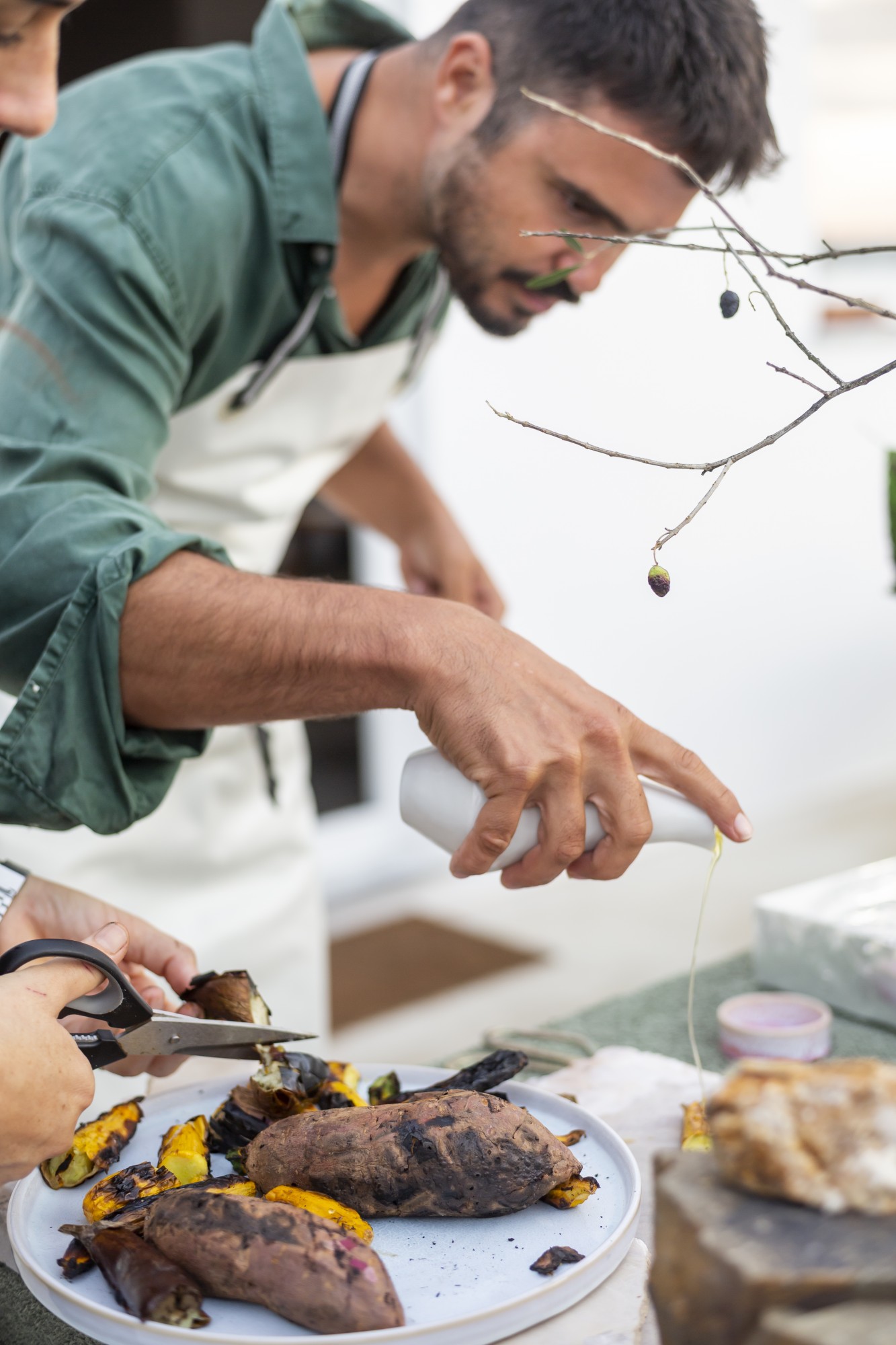
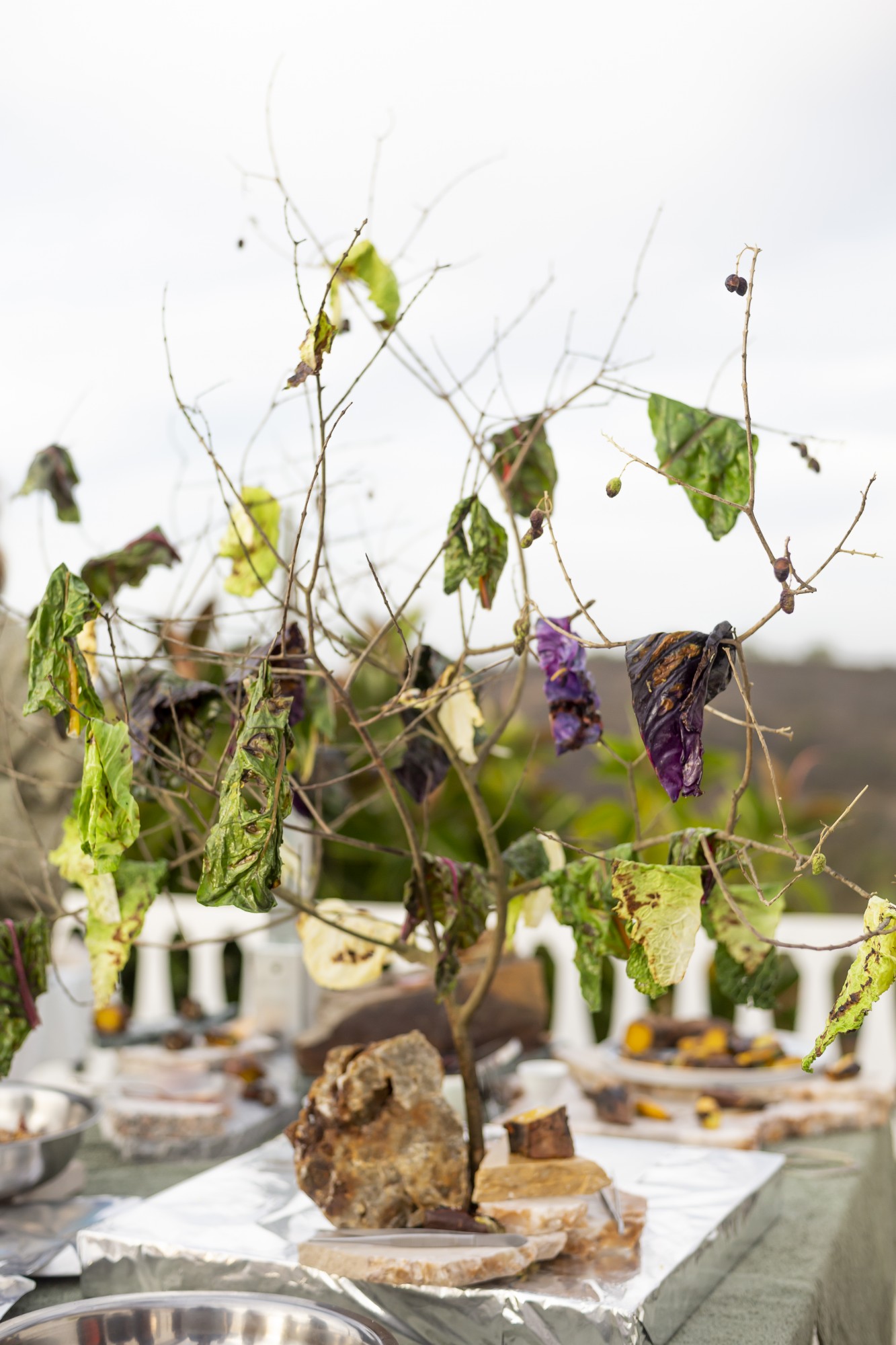
WAN: How do you start working on a production?
CT: It really depends on the invitation. But I like to think of the dinner as a play and the table as a stage. I need to find a name for the play and decide how I will stage it. Everything counts: the table cloth, the vessels, the music. Why do we serve oysters? What do they symbolically represent? And cooking well and learning techniques became more and more important to me. It needs to taste good and activate some unusual type of perception on the palate. I try to conceive an overall experience that is inclusive and democratic. Food has the power to unite a lot of ideas, everyone has an opinion about a taste or a flavour. Food is our common denominator.
WAN: You just spent a month at Casa Wan in Portugal as an artist in residence. Would you like to share thoughts and experiences on the house, landscape and encounters with us?
CT: Nadja made me feel very welcome and created a tailor-made experience for my days here. Since day one, I met the shakers and movers of the Aljezurian food scene. Maria and Antonio…..The house is lovely, has spectacular views and the guests coming are mostly interesting and they were people I genuinely wanted to hang out with.
WAN: What would be your recommendation to someone traveling to the region of Aljezur, Algarve?
CT: Praia da Amoreira for walks and contemplation. A simple, boozy lunch at O Zé at Monte Clerigo. Sunset at Odeceixe is spectacular.
WAN: Where are you traveling to next?
CT: Copenhagen, Denmark.
WAN: What is your perspective on cultural understanding through cuisine?
CT: I see through the lens of food because food is everywhere, you know? It is our common denominator and we need to eat. It’s not only for sustenance but also as a component of social life and my practice is based on that. And coming from Brazil, it is interesting to come to Portugal because you start tracing back and doing lot of connections between your food heritage and how that affects yourself. To see also these interconnections and some myths of culture, for instance, I think a lot of countries had to create their national identity. In Brazil, especially, it was really important because the country was always so fragmented. I think you always use it to fuel a national dish. Some places don't do that because the cuisine is everywhere such as French food. My experience doesn’t point to that but resonates with the Brazilian Feijoada. There are always stories or urban legends about how it started.
WAN: What is it?
CT: Feijoada is black beans that you cook with different parts of pork. They say this is from the slavery period because they would use the beans and all the other parts of the pork because it was cheap. All these parts are very gelatinous and it adds a lot of deliciousness and it became the national dish. It is a great reference and I'm sure that there is a lot of truth to it but the Feijoada is for hunger. It's just interesting how we appropriate things. We worked with olive oil in the first week at Casa Wan and, for me, it was a great example to think of olive oil as one of these things that proves the idea of the colonial project. You see all the different condiments and spices from the tropics everywhere and products from Brazil but the olive oil is, still until today, seen as a luxury item and expensive.
WAN: And therefore not part of...
CT: And not part of the culinary day-to-day life. It is interesting to experience being in an area that is a microclimate of Portugal which is the only place that sweet potatoes and peanuts grow. They are crops from the colonies of South America and it works here because there is this microclimate.
WAN: But here in Aljezur or here in the Algarve?
CT: Here in the Algarve and the coast only. To think of Portugal being colonised is also interesting. When I went to Alvor, which is very different from this area because, even though it's forty kilometres away from here, there are these English vermin. It feels exactly like that, it's like a new, a new...
WAN: A new colony?
CT: It's a new colonial project and process to stop colonialism in a way. Of course, how does it affect food service and this necessity to have a traditional pastel de nata or traditional Portuguese food which is translated into something else. There's been a lot of learning.
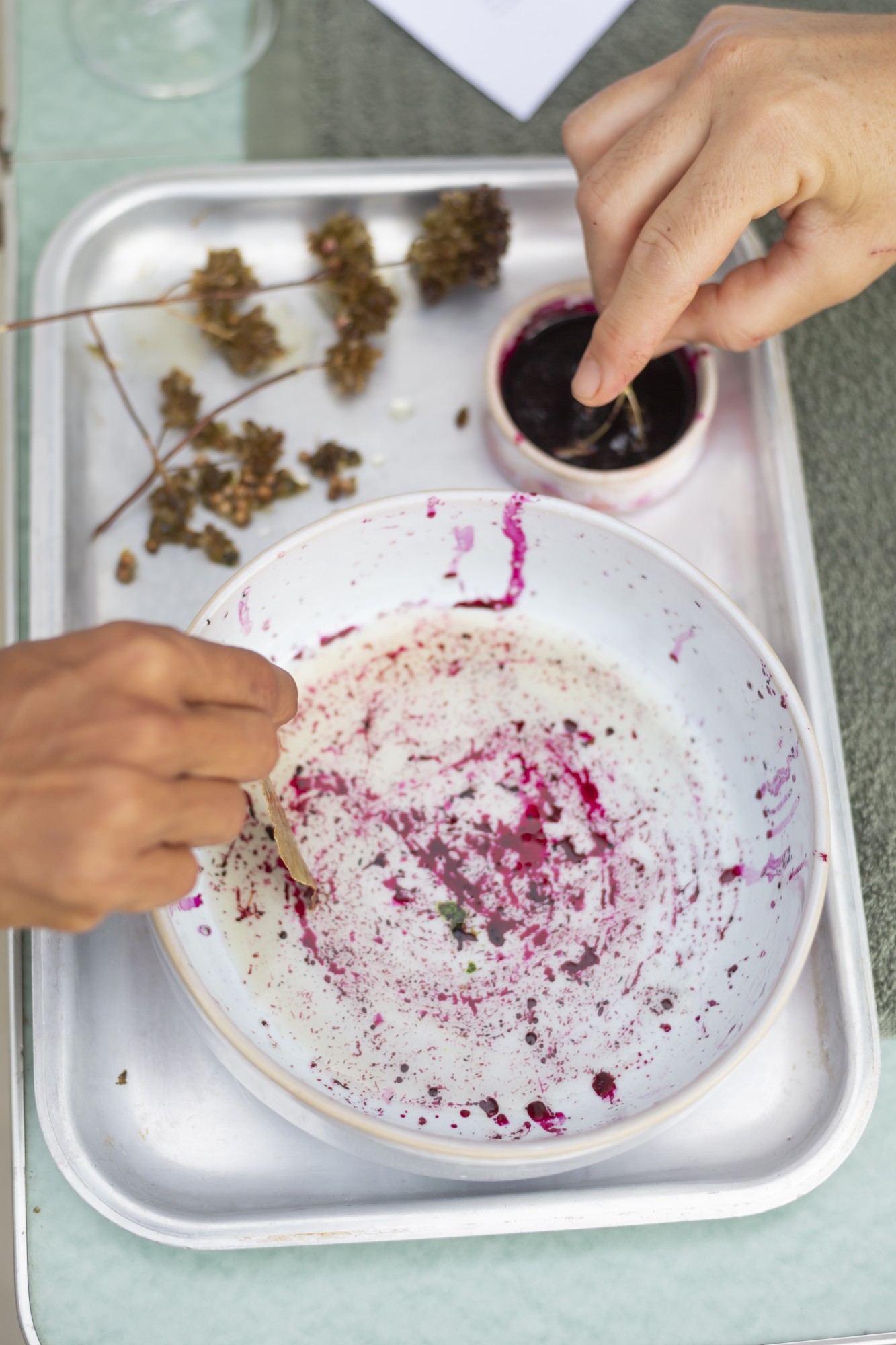
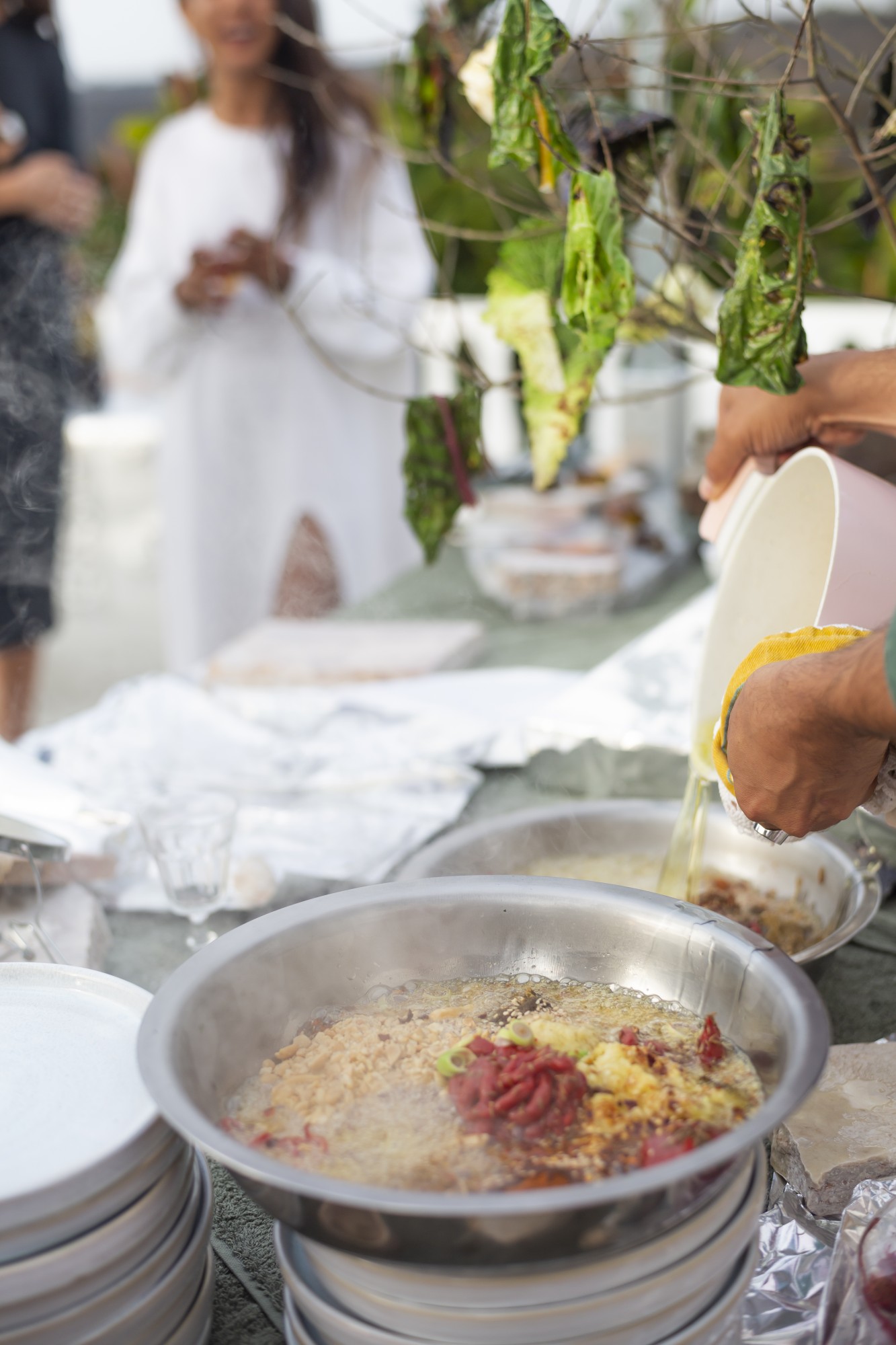
WAN: Caique, so you have been super busy over the summer and you are part of a new publication. I wonder how you see this residency within your creative process. So what happened before and what are you doing after? How do you think it might affect your practice?
CT: I was doing a lot of work and with the post-COVID flexibilisation of the rules that people were able to meet again. My practice was something that was really part of the zeitgeist and people wanted to meet and that's basically what I try to propose: new ways of being together and meeting up together. I think that was one reason why there was such a high demand for my work and also because we don't know what is going to happen next. I have to take all the opportunities because I’m a freelance artist and we live by the month. I was exhausted. Even though I was grateful that things were happening, it was super stressful. For me, it was to reset, come here and have a month where there's nothing related to transactional modes of operation. You just unplug from that and then it's only you, the context and the people who are surrounding you. It was really nice to see how my brain, and my body, operates in a situation like that. Being a sweet potato all the time [laughs]. It’s such a privilege to have this time. If we all as human beings, not only artists but everybody, had this opportunity to take a break, to reassess, to understand their roles or thoughts and how we can be more meaningful with their practices and work: that would be amazing right? I was reading a lot of things that I wanted to read. I was introduced to books, situations and people. It helped me to approach a different kind of working mode that is very productive as well. It's totally fine not to have a final event.
WAN: And what is awaiting you when you come back to Berlin?
CT: My home, my kitchen. I'm really looking forward to meeting my team again.
WAN: How big is your team?
CT: It depends. I have a general assistant who helps me to set up the specific team for every work. She has been working with me for ten years. We all work together and then I have somebody to sort out the logistics and who builds all the placards because it is more of a theatre piece. Sometimes this year we had a team of about sixteen, so it really depends on the job. For some jobs we need two production managers when you have revolving installations and catering.
WAN: And you are the person who leads the creative process and you also actually work onsite?
CT: I do it all. For me, it is very important. I cook everything so I set up the team plus the food. So it's a lot of pieces that need to come together. It’s ultra-collaborative and depends on multiple things but I like to be a part of everything. It’s important to be the host as well.
WAN: One last question, can you say a couple of sentences about the book?
CT: Which book, the one I'm writing or the one I...
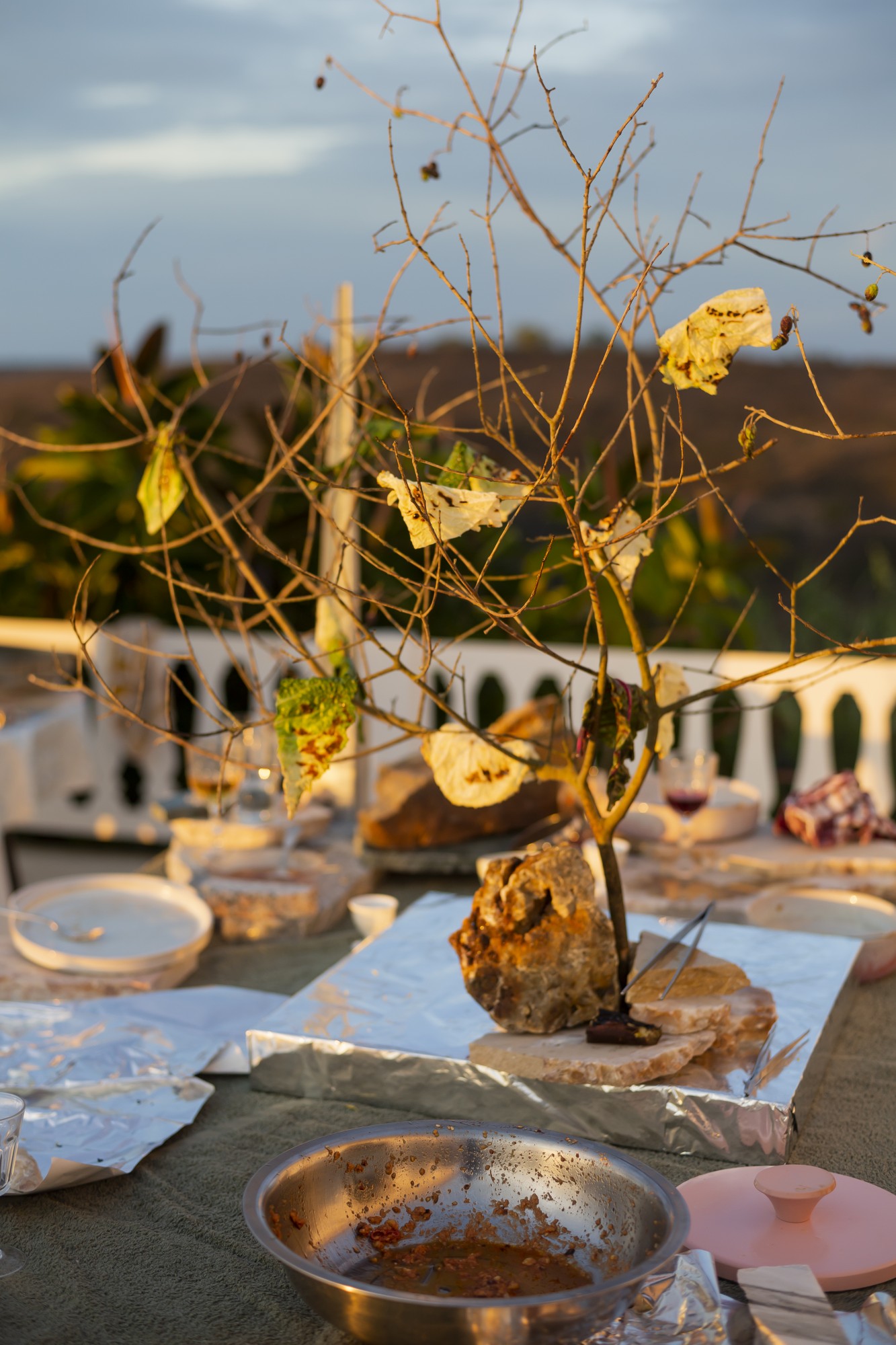
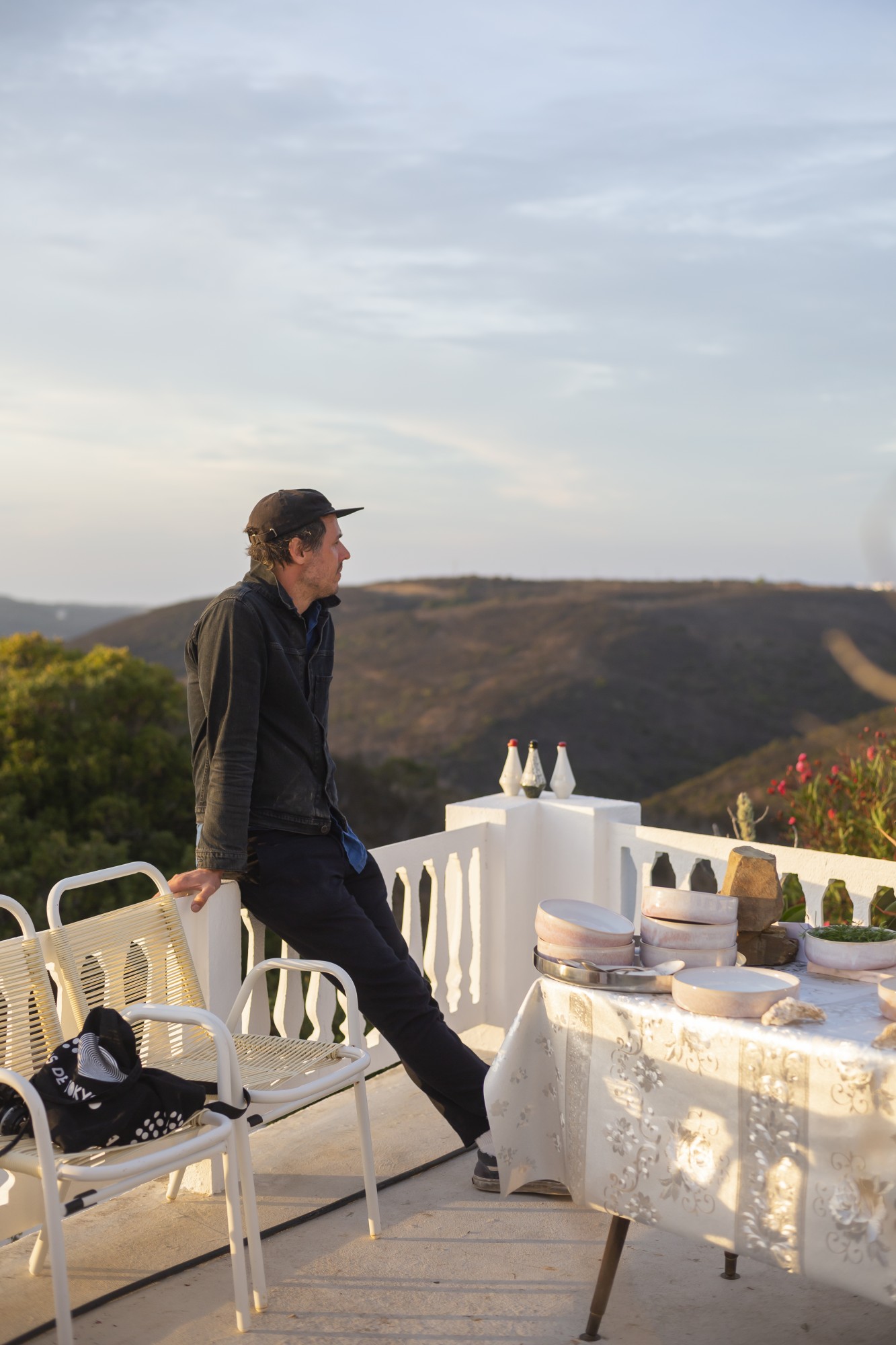
WAN: Maybe both?
CT: So, I was approached last year by Phaidon Press, the publishing house. I got this email and I thought it was spam because I buy a lot of their books. I thought, ‘Oh these must be their releases for the Fall’. I opened the email and it was actually an invitation to contribute for their next book which is called The Kitchen Studio: Culinary Creations by Artists. It's a compilation of the work of contemporary artists who have used food as a medium, people such as Gordon Matta-Clark, Rikrit Tiravanija, Studio Olafur Eliasson and Carsten Höller who wrote the ‘Brutalist Kitchen Manifesto’. Phaidon are also really responsible for turning the chef into a celebrity which started when they published these beautifully edited books for restaurants. They were doing this alongside all the art books that we all know. They say that this is their first book to try and intersect these two fields and the introduction of the book is written by the Italian chef Massimo Bottura. His wife is an art historian and she helped him to open his restaurant in Modena which is highly influenced by contemporary art. He is on the first episode of the first season of Chef's Table, so everybody knows him. They invited me to contribute to this book and to be part of the canon of the practice. I think this book helps to make the mainstream public interested in art and food.
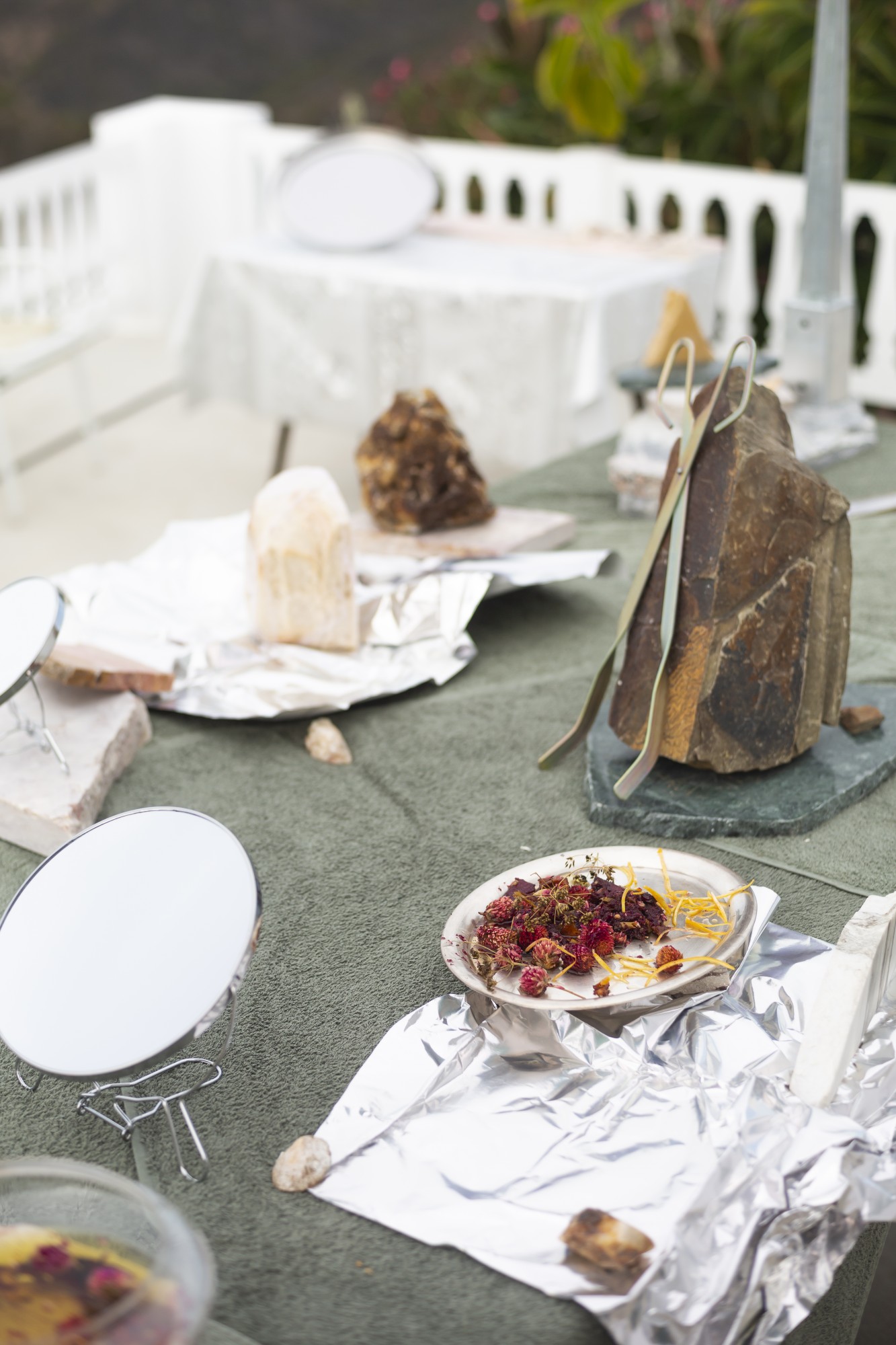
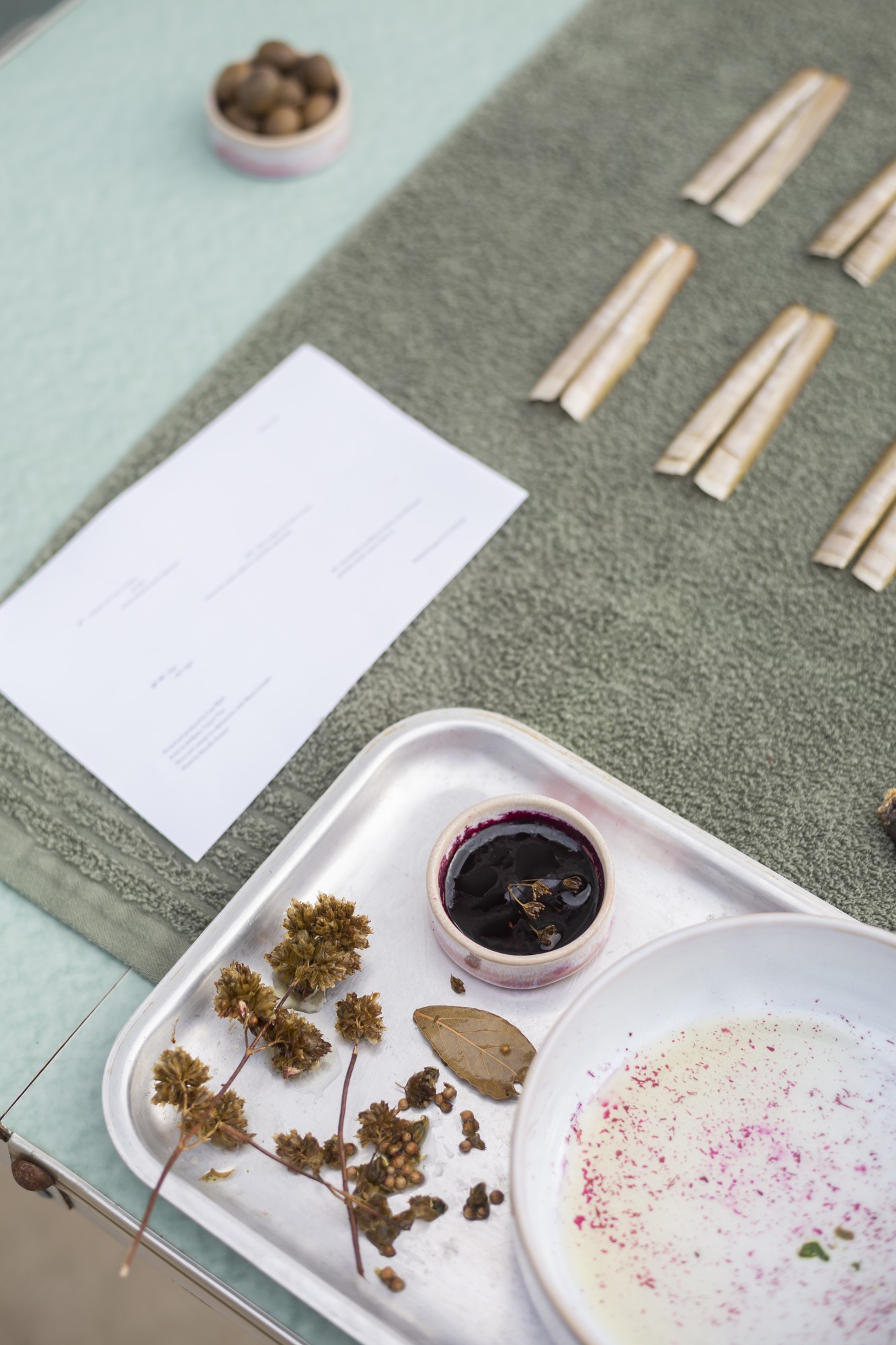
WAN: It also acknowledges your field, I think.
CT: Exactly! That's exactly what I'm trying to say. This type of publication will help me not to have to explain all the time what I do. ‘But are you a cook? Are you a chef? Are you an artist?’ For me, you choose: ‘I am a cook, I am an artist’. If you come see it as a dinner, that’s great. Or if you come and see it as a performance, that’s great. If you come and see it as a mess, that's also fine. No, that part is not fine, I was kidding. It’s exciting to be a part of.
When I wrote the contribution for this book, it was actually during the second lockdown so I really took my time. Usually, I think I would have written something a little bit more rushed. I thought, ‘No it's Phaidon Press, I want to do this’. It’s among so many known names. ‘I’m just going to be patient and do something good’. They asked for a recipe or a culinary creation and it was very open. Instinctively it came to me that I was writing more of a recipe of how I host or how I create events. When I wrote that I thought, ‘Wow, if I elaborate on every topic on this I can write my own book’. And then it came very naturally, that I started elaborating every aspect of six steps how to host. And then I started writing and now I have a book proposal. The title is, the working title, for my... Oh my god, it's being recorded so I need to do it now. I love it. Now I vocalised something.
Okay, I'm not going to tell you the title of my book. Not to the recording.

